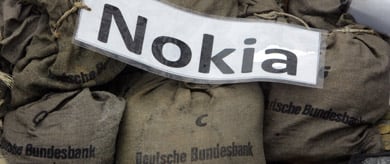Germany’s Federal Research Ministry on Saturday confirmed media reports that they are asking back for subsidies worth €4 million from embattled Finish handset maker Nokia.
A spokeswoman for the Ministry said there were “huge doubts” that Nokia’s use of the subsidies to promote the development of antennas and wireless communication networks was still justified after the company announced it was closing its plant in the city of Bochum and moving to Romania instead. The Ministry has sent a letter to the company urging it to explain which patents stemmed from the projects and which German plants profited as a result.
If Nokia fails to come up with a “substantial answer,” it will have to pay back the subsidies, the spokeswoman said.
The state of North-Rhine Westphalia where the Bochum plant is located has already demanded the return of subsidies worth €41 million. State authorities accuse the company of violating the conditions of its agreement for receiving subsidies from the state because it did not create the minimum number of 2,800 permanent jobs at the plant that had been promised under the deal.
Nokia sparked national outrage in Germany when it announced in January that it was closing its Bochum plant and moving to low-cost Romania by mid 2008. Around 2,300 Nokia employees in Germany will be affected by the closure.
Nokia claims it has become too expensive for the company to continue manufacturing mobile phones in Germany. The move prompted some politicians to call for a boycott of Nokia phones.



 Please whitelist us to continue reading.
Please whitelist us to continue reading.